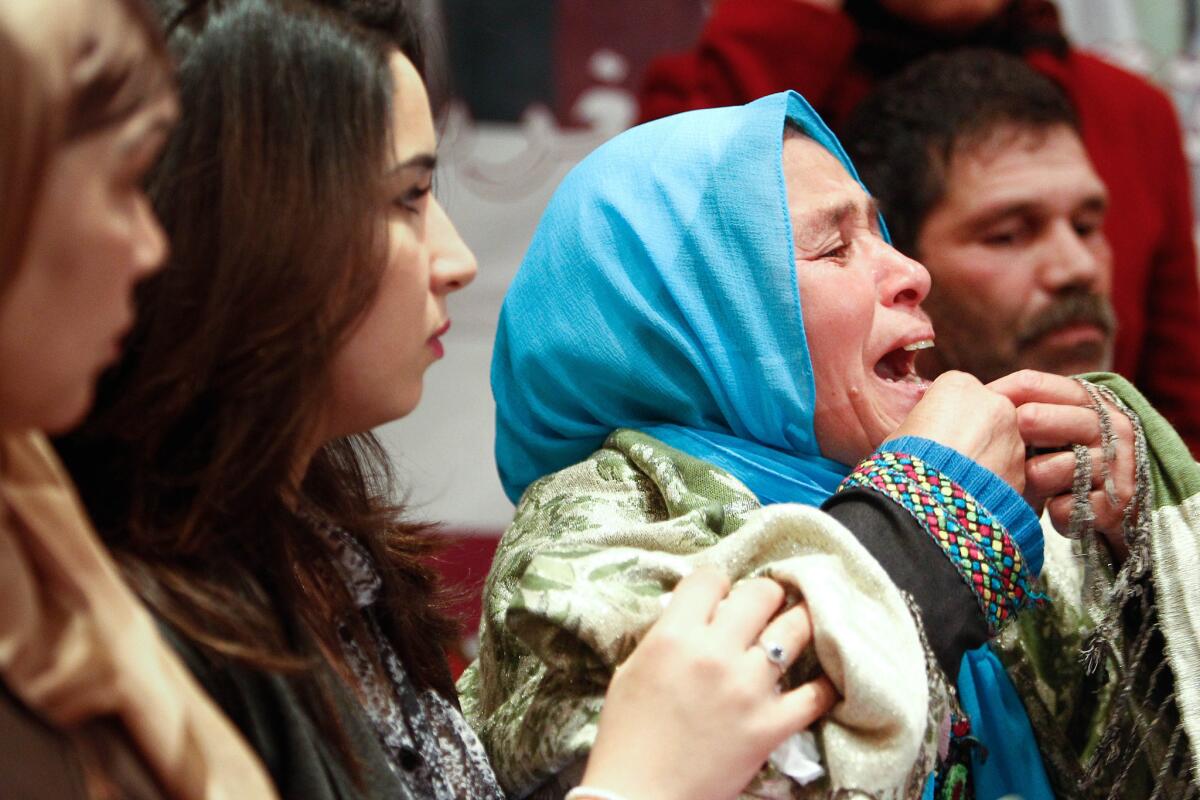Morocco poised to stop exonerating rapists who marry victims

- Share via
Nearly a year after a Moroccan teen took her life after being wed to her rapist, the country is poised to change a law allowing “seducers” to escape prosecution by marrying their victims.
Rights activists were heartened by Justice Minister Mustapha Ramid’s announcement this week that he planned to do away with part of Article 475, which says someone who “abducts” or “seduces” a minor cannot be prosecuted if the two are married after the fact.
The law itself does not refer to rape, but has been used to exonerate rapists, rights groups say. Such marriages are seen as a way to salvage the honor of the violated woman. The loophole caused an uproar last year after the suicide of 16-year-old Amina Filali, who reportedly swallowed rat poison after being wed to the man who had raped her.
Moroccan officials at first downplayed the problem, saying such unions were rare. But Ramid announced the planned changes Monday, and the amendment is working its way through the Moroccan legislature.
Removing the rule “will put an end to an injustice, an end to rewarding the rapist by giving him the victim on a golden plate,” said Fatima Outaleb of Union de L’Action Feminine, a women’s organization based in Rabat, the Moroccan capital. “If it is really adopted, once and for all, I think it is an achievement.”
Outaleb and other activists said, however, that more sweeping changes were needed to protect Moroccan women and girls. Activists complain that laws and police practices shield husbands who harm their wives, failing to recognize spousal rape and frequently treating domestic violence as a family problem. Despite the official marriage age of 18, some judges still allow young teens to be wed, using legal exceptions.
Even the proposed changes are somewhat problematic, activists say. The new law would impose much stiffer punishment for “rape resulting in ‘deflowering’” than other rapes, a distinction that reflects a preoccupation with female virginity rather than stopping the violence.
“The attitude is that whether you’re a victim or not is trumped by whether you’re a virgin,” said Eric Goldstein, Human Rights Watch deputy director for the Middle East and North Africa.
Despite such shortcomings, Morocco has been seen as a leader in gender equality in North Africa, thanks to reforms pressed eight years ago by its king. Women have the same rights as men to divorce and are supposed to enjoy equal rights within the family.
As Islamists have gained more power in its government, however, local rights groups have complained of stalling on such issues. A draft law on violence against women is languishing. Outaleb lamented that even as the government weighs Article 475, it is seeking to let 16-year-olds marry, a “regression” to “legitimate early marriage.”
“That’s one big sign that there might be backwards steps on the rights of women,” said Mohammed Boukili, a Moroccan Assn. of Human Rights board member.
ALSO:
Palestinian student shot by Israeli troops, witnesses say
Big deal, little fanfare over global pact on mercury controls
Britain’s David Cameron pledges in-or-out vote on EU membership
More to Read
Sign up for Essential California
The most important California stories and recommendations in your inbox every morning.
You may occasionally receive promotional content from the Los Angeles Times.










